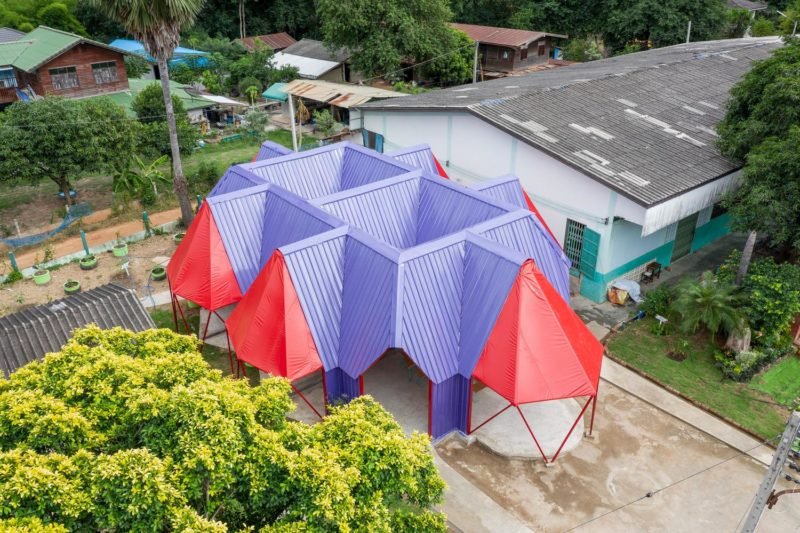This Modular School Can Be Set up Anywhere to Escape Demolition

The India-based Social Design Collaborative has created ModSkool, a low-cost, modular school that can be easily dismantled within a few hours to protect schoolchildren from building demolitions and forced evictions.
Originally located near the floodplains of the Yamuna river in Delhi, the structure was first developed as a concept after a school for children of a local farming community was forcefully demolished in 2016 due to the settlement’s “illegal” status. In response, the community approached Social Design Collaborative, who describes themselves as a “community-driven design, art and research practice to provide access to design for all through collaborative projects.” The team spent the next year consulting with local leaders and designing the anti-eviction school, which was planned to be low-cost and easily maintained. In the summer of 2017, students, staff, villagers, and other volunteers carried out the construction of the school, which was completed in less than 3 weeks.


The core frame of ModSkool as well as its roof is made of steel, providing the general structure of the classroom. The rest of the building – the walls and screen doors – are made out of local materials that are frequently used to build homes, such as bamboo, recycled wood, and dried grass. Other aspects of the school’s design are also adapted to the local climate, including the rotating bamboo screen doors that increase the structure’s ventilation.

Since 2017, ModSkool has already been dismantled and relocated once, due to issues of land ownership. While the steel frame of the structure was retained during the move, other parts of the school were rebuilt using new materials unique to its new location.

Forced demolitions and evictions are common in Delhi, where the government continues to target what it considers to be “informal” settlements, despite the city’s zero-eviction policy. In 2018, for example, it was estimated that over 202,233 people were forcefully evicted, which is equivalent to at least 23 people evicted every hour. Many affected communities, such as the farmers at the Yamuna river, have been living in their respective areas for decades, despite holding no formal land titles. In this context, Social Design Collaborative’s ModSkool combines design and community engagement to creatively address the challenges associated with land ownership and forced evictions.



